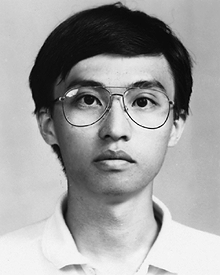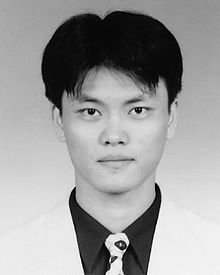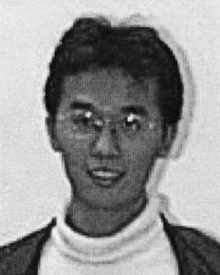Chin-Teng Lin (S'88–M'91–SM'99) received the B.S. degree in control engineering from the National Chiao-Tung University, Hsinchu, Taiwan, R.O.C., in 1986 and the M.S.E.E. and Ph.D. degrees in electrical engineering from Purdue University, West Lafayette, IN, in 1989 and 1992, respectively.
Since August 1992, he has been a Professor and Chairman of the Electrical and Control Engineering Department at the College of Electrical Engineering and Computer Science, National Chiao-Tung University, Hsinchu, Taiwan, R.O.C. From 1998 to 2000, he served as the Deputy Dean of the Research and Development Office of the National Chiao-Tung University, Hsinchu, Taiwan, R.O.C. His current research interests include fuzzy systems, neural networks, intelligent control, human–machine interface, image processing, pattern recognition, video and audio (speech) processing, and intelligent transportation systems (ITS). He is the coauthor of Neural Fuzzy Systems—A Neuro-Fuzzy Synergism to Intelligent Systems (Prentice Hall), and the author of Neural Fuzzy Control Systems with Structure and Parameter Learning (World Scientific). He has published over 60 journal papers in the areas of soft computing, neural networks, and fuzzy systems, including about 40 IEEE Transactions papers.
Dr. Lin is a member of Tau Beta Pi and Eta Kappa Nu. He is also a member of the IEEE Computer Society, the IEEE Robotics and Automation Society, and the IEEE Systems, Man, Cybernetics Society. He has been the Executive Council Member of the Chinese Fuzzy System Association (CFSA) since 1995, and the Supervisor of the Chinese Automation Association since 1998. He is the Chairman of IEEE Robotics and Automation Society, Taipei Chapter, since 2000, and the Associate Editor of IEEE Transactions on Systems, Man, Cybernetics since 2001. Dr. Lin won the Outstanding Research Award granted by National Science Council (NSC), Taiwan, from 1997 to 2001; the Outstanding Electrical Engineering Professor Award granted by the Chinese Institute of Electrical Engineering (CIEE) in 1997; and the Outstanding Engineering Professor Award granted by the Chinese Institute of Engineering (CIE,) in 2000. He was also elected to be one of the 38th Ten Outstanding Young Persons in Taiwan, R.O.C., (2000).
Chin-Teng Lin (S'88–M'91–SM'99) received the B.S. degree in control engineering from the National Chiao-Tung University, Hsinchu, Taiwan, R.O.C., in 1986 and the M.S.E.E. and Ph.D. degrees in electrical engineering from Purdue University, West Lafayette, IN, in 1989 and 1992, respectively.
Since August 1992, he has been a Professor and Chairman of the Electrical and Control Engineering Department at the College of Electrical Engineering and Computer Science, National Chiao-Tung University, Hsinchu, Taiwan, R.O.C. From 1998 to 2000, he served as the Deputy Dean of the Research and Development Office of the National Chiao-Tung University, Hsinchu, Taiwan, R.O.C. His current research interests include fuzzy systems, neural networks, intelligent control, human–machine interface, image processing, pattern recognition, video and audio (speech) processing, and intelligent transportation systems (ITS). He is the coauthor of Neural Fuzzy Systems—A Neuro-Fuzzy Synergism to Intelligent Systems (Prentice Hall), and the author of Neural Fuzzy Control Systems with Structure and Parameter Learning (World Scientific). He has published over 60 journal papers in the areas of soft computing, neural networks, and fuzzy systems, including about 40 IEEE Transactions papers.
Dr. Lin is a member of Tau Beta Pi and Eta Kappa Nu. He is also a member of the IEEE Computer Society, the IEEE Robotics and Automation Society, and the IEEE Systems, Man, Cybernetics Society. He has been the Executive Council Member of the Chinese Fuzzy System Association (CFSA) since 1995, and the Supervisor of the Chinese Automation Association since 1998. He is the Chairman of IEEE Robotics and Automation Society, Taipei Chapter, since 2000, and the Associate Editor of IEEE Transactions on Systems, Man, Cybernetics since 2001. Dr. Lin won the Outstanding Research Award granted by National Science Council (NSC), Taiwan, from 1997 to 2001; the Outstanding Electrical Engineering Professor Award granted by the Chinese Institute of Electrical Engineering (CIEE) in 1997; and the Outstanding Engineering Professor Award granted by the Chinese Institute of Engineering (CIE,) in 2000. He was also elected to be one of the 38th Ten Outstanding Young Persons in Taiwan, R.O.C., (2000).View more 



